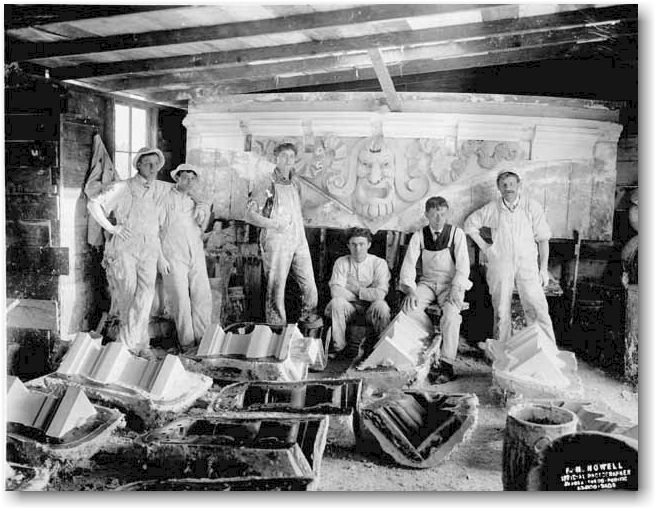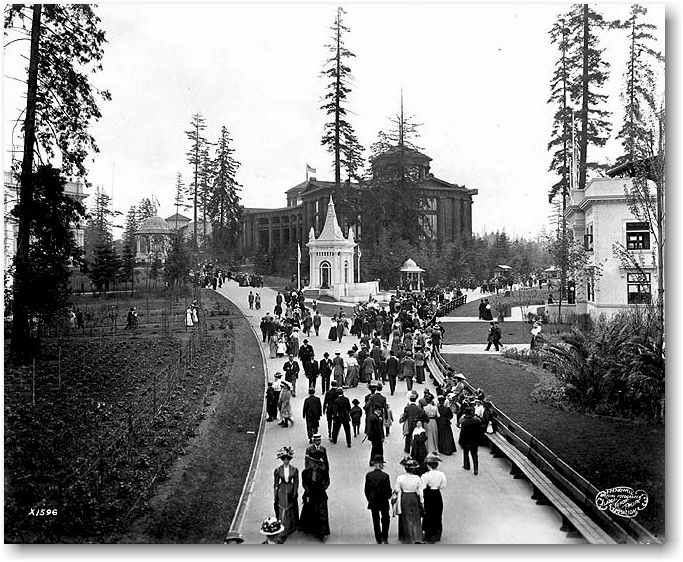The Alaska-Yukon-Pacific Exposition
University of Washington Campus, 1909
In the summer of 1909, a world's fair, the Alaska-Yukon-Pacific Exposition, took place on the grounds of the University of Washington. The fair shaped the campus in ways that are visible today, creating the Rainier Vista and Drumheller Fountain. For many years, some of the former fair buildings were used by the University; today only Architecture Hall and Cunningham Hall remain. Landscaping for the fair was done by the famous firm of Olmsted Brothers, whose plan influenced all later designs for the campus.
A succession of world's fairs took place in the United States following the tremendous popularity of the World's Columbian Exposition, held in Chicago in 1893. Local civic boosters successfully developed plans for such a fair in Seattle, intended to promote the region's economic and cultural ties to Alaska, the Canadian Northwest, and the Pacific Rim. The exposition opened on the grounds of the University of Washington on June 1, 1909.
Frank H. Nowell was the official photographer for the exposition. These photographs, as well as hundreds of others of the fair, can be found in the Special Collections Division of the University of Washington Libraries. Other research materials about the fair such as brochures, postcards, maps, guidebooks, and scrapbooks can also be found there.
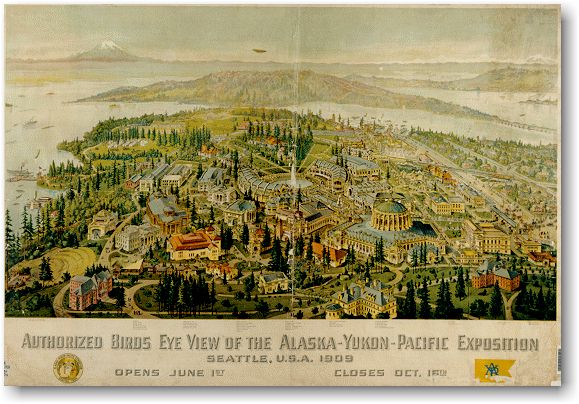
Artist William Caughey created this birdseye view of the Alaska-Yukon-Pacific Exposition, looking to the southeast toward Mt. Rainier. Several University buildings are visible, such as Denny Hall and Parrington Hall in the right foreground. The University had moved from downtown Seattle to its present site in 1895, and most of the grounds were undeveloped before the exposition. Birdseye views were popular from the mid-nineteenth century until about 1920. UW 1378
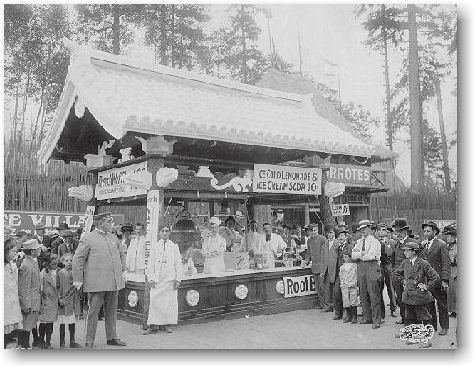
Along "The Pay Streak," the fair's entertainment area, were small businesses such as this lemonade stand, located in a kiosk that suggested the architecture of Japan. Nowell X2726
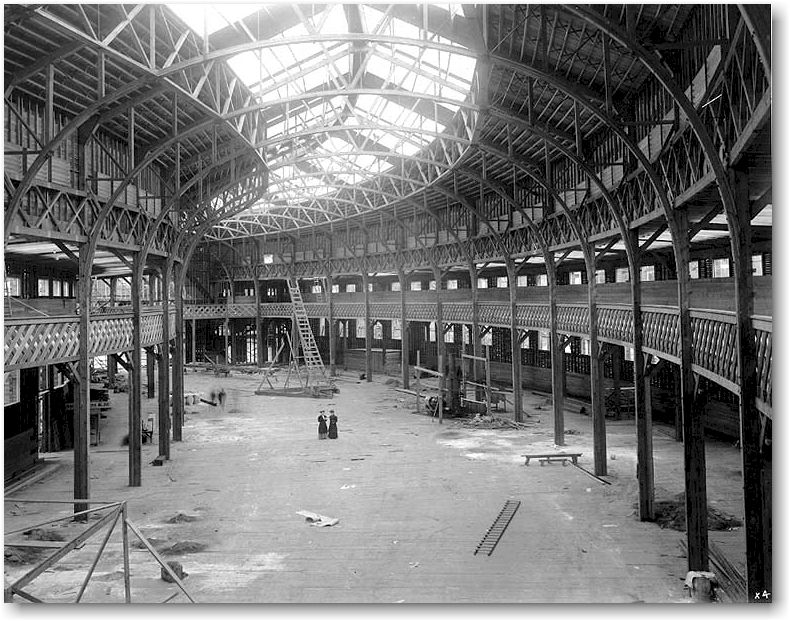
Photographed during construction, the Manufacturers Building reveals its massive wooden structural components. Although the building's interior was spare, outside it was an architectural confection in plaster. Nowell X4
Dozens of skilled crafts workers contributed to the realization of the fair's designers. Here plasterers pose with some of their work in progress. Nowell X259
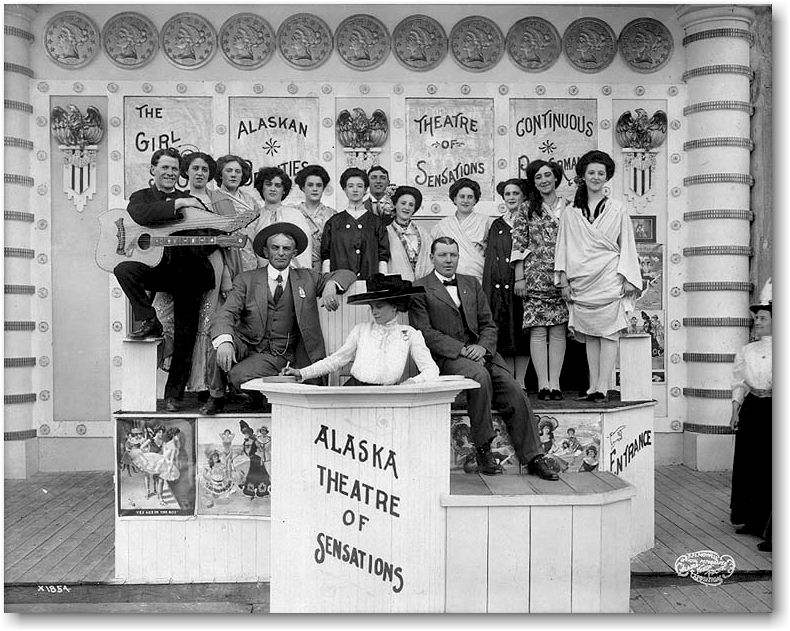
Many of the attractions along "The Pay Streak" traded on the excitement associated with the 1897 Klondike gold rush in Alaska and the Yukon. The rush produced an economic bonanza for Seattle, which was the chief outfitting point for the miners. Nowell X1854
Well-mannered fairgoers stroll in front of the Forestry Building, a temple to trees that was built of unpeeled logs. After the exposition it housed the College of Forestry. The small light building at the center is an exhibit for the Paraffine Paint Company. Nowell X1596
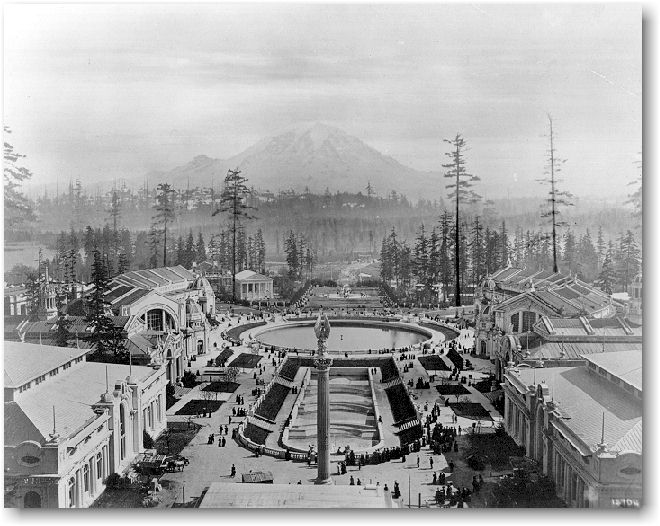
A stunning view of Mt. Rainier is framed by the Court of Honor, the steps of water called the Cascades, and Geyser Basin (now Drumheller Fountain). The photograph was taken from the top of the Government Building. Nowell X1040A
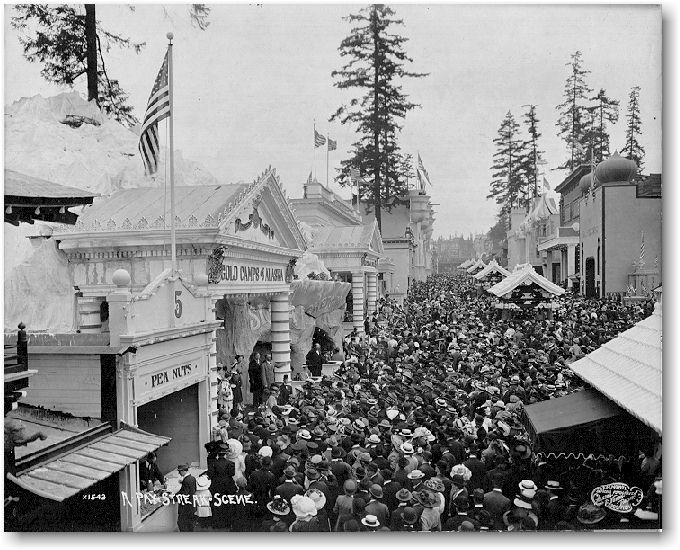
Throngs of visitors crowd "The Pay Streak," the fair's entertainment area. The temporary quality of most of the fair buildings is evident. Nowell X1558
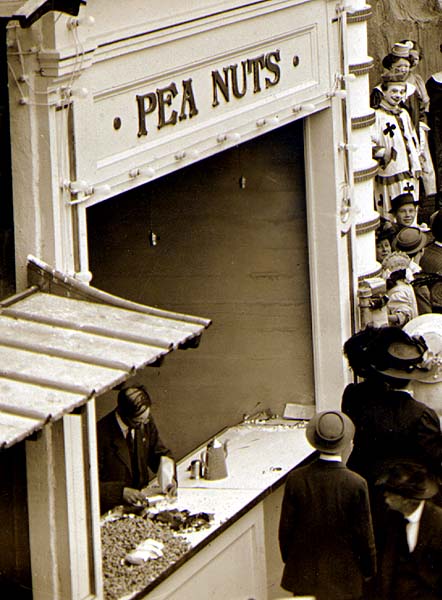
Close up of the Pea Nuts stand.
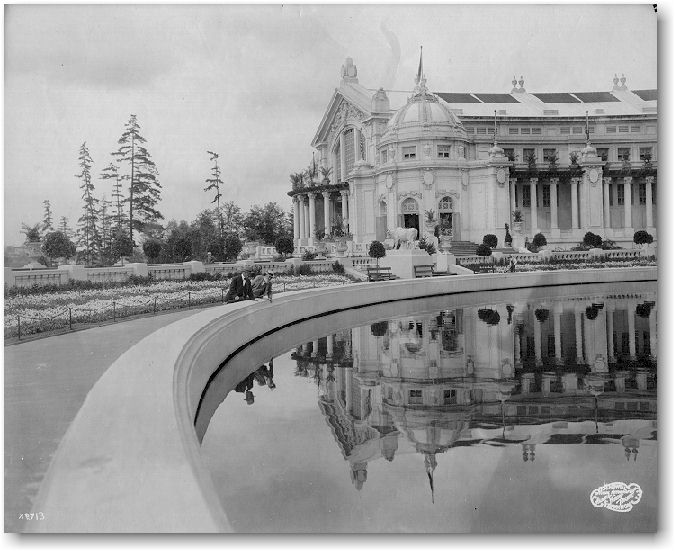
A corner of the Agriculture Building is reflected in Geyser Basin. At the left are a few trees that escaped the landscape transformation that occurred on much of the campus as a result of the fair. Nowell X2713
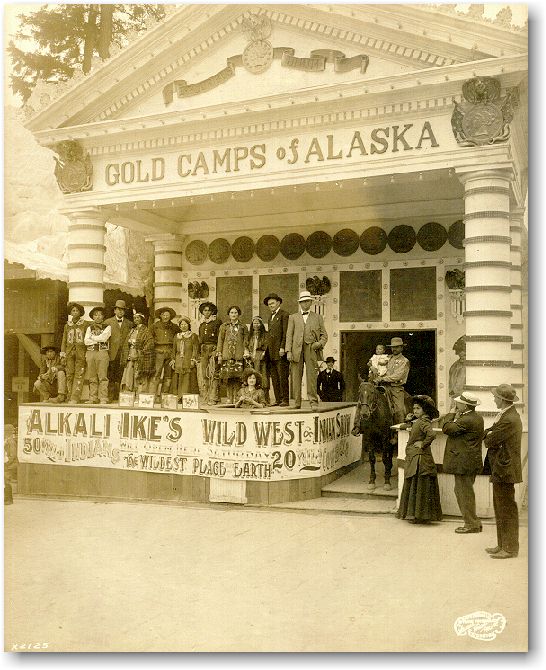
Expositions were designed to showcase exotic and faraway places and activities. Here Native Americans, cowboys, and miners are part of the entertainment at one of the fair's concession exhibits. Nowell X2725
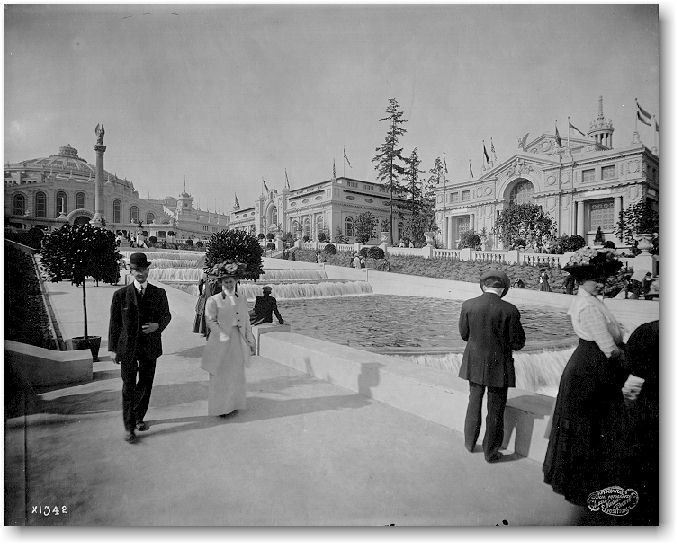
The Cascades ripple down toward the Geyser Basin behind a happy couple. In the background are the Government Building and the exhibit buildings for Hawaii and the Orient. Nowell X1342
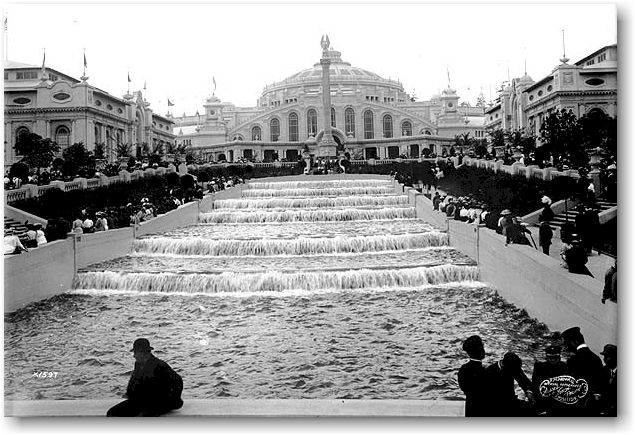
This view shows the Government Building at the top of the Cascades. Today, this view would be from Drumheller Fountain up the Rainier Vista toward Red Square. Nowell X1597
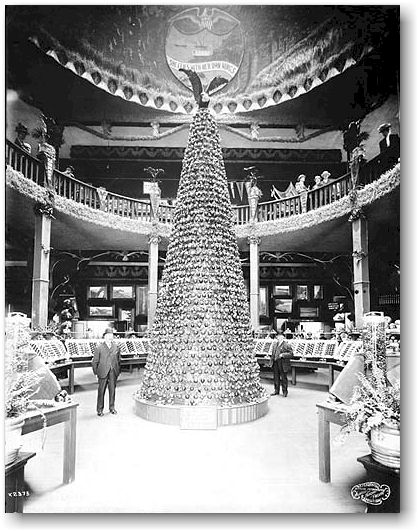
The State of Oregon sponsored an exhibit building that included a towering display of fruit surmounted by an eagle. Topping that was a translation of the Oregon territorial motto, "Alis volat propriis." Nowell x2373
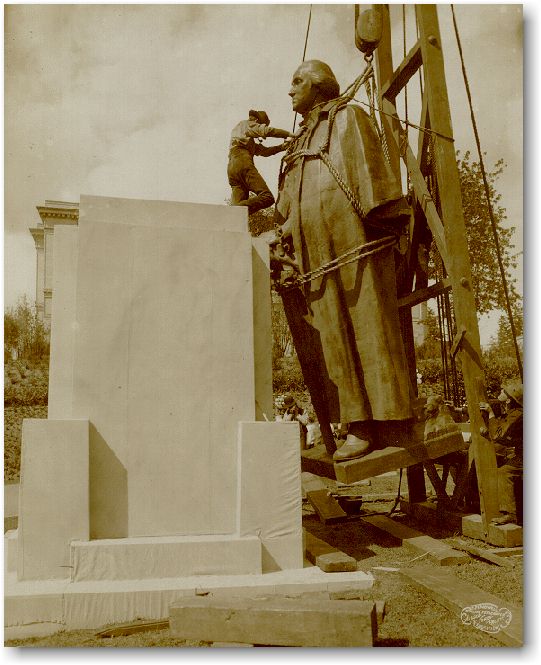
At the western entrance to the fairgrounds rose Lorado Taft's monumental statue of George Washington. Still a prominent campus landmark, it was partially funded by contributions from the state's schoolchildren. Nowell X1913
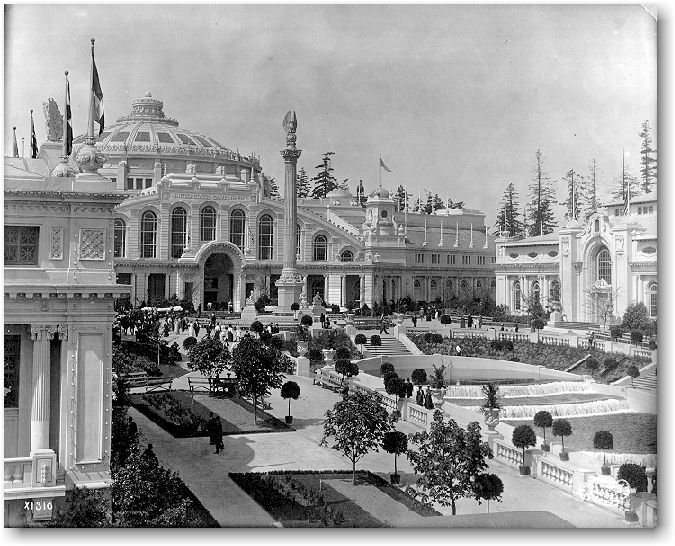
Fresh plantings helped take the raw edges off the Court of Honor, located in front of the massive Government Building. At the center, to the left of the flag, is the cupola of Denny Hall. Nowell X1310
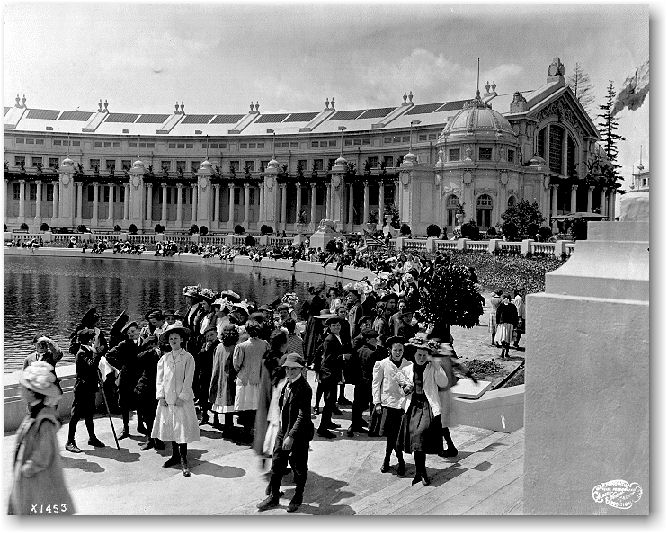
Thousands of children attended the fair every day, but they were particularly numerous on Children's Day. Nearly every day at the fair commemorated one or more special groups such as fraternal organizations, occupations, and nationalities. Nowell X1453
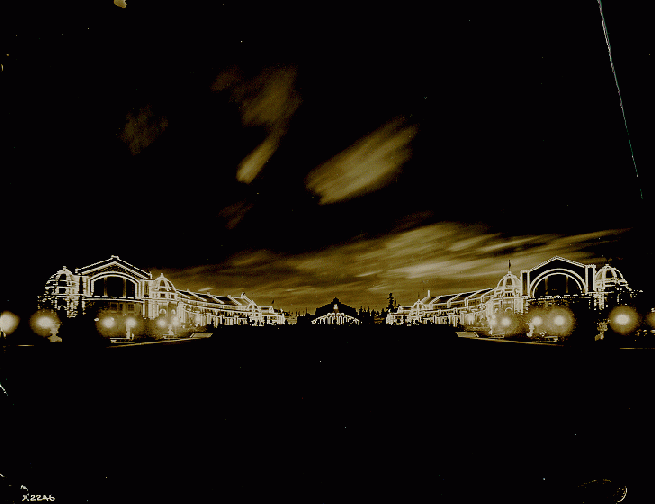
More than 20,000 electric light bulbs outlined the major buildings at the 1909 Alaska-Yukon-Pacific Exposition. The photograph required a lengthy time exposure. Nowell X2246
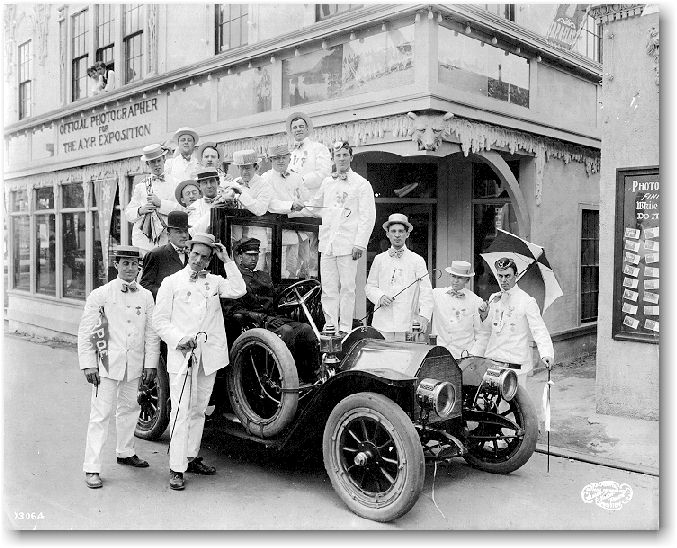
Members of the Benevolent and Protective Order of Elks pose in front of photographer Frank Nowell's shop, probably on Elks' Day at the fair. Nowell X3064
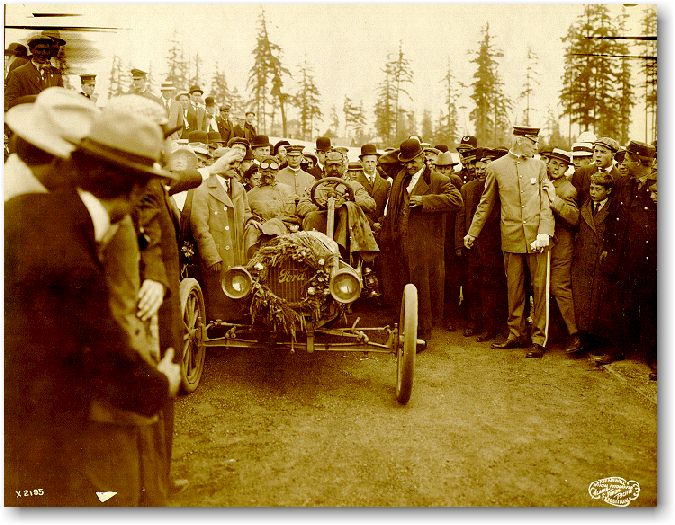
On June 1, 1909, the opening day of the exposition, six automobiles left New York for Seattle. Driver Bert Scott and his mechanic, Frank Smith, arrived in their mud-spattered Ford on June 23 to win the transcontinental race. Nowell X2195
This Web exhibition copyrighted by the University of Washington Libraries. The exhibition may be used online, parts of it downloaded for personal use, or the URL for the exhibition may be included in another electronic document. For information on reproductions of the images and use guidelines click here or contact Special Collections.
For more images of the AYP Exposition, visit the Alaska-Yukon-Pacific Exposition Photograph Collection at the UW Libraries Digital Initiatives site.




